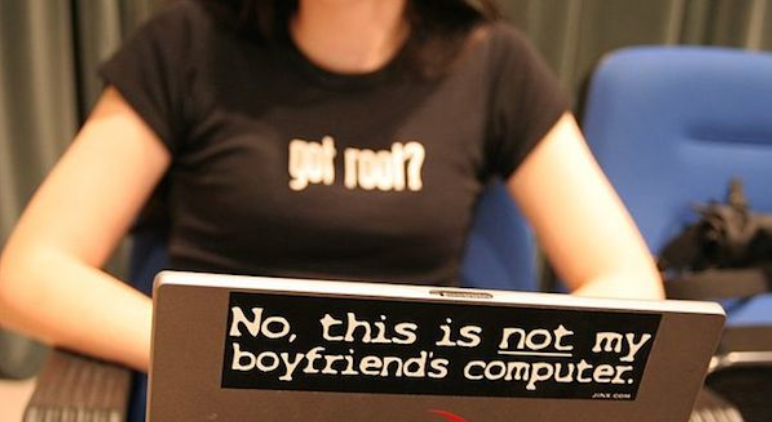Welcoming Women to our Teams Properly

I’ve scarcely had the chance to work with women in my engineering career. They are very, very uncommon on teams I’ve been on and in classes I’ve attended. This article is actually not directed toward women. This writing is instead directed to the men this community is saturated with.
We are stronger in our teams when our teams are more diverse. Have you noticed? We get more ideas from our teammates when they come from different backgrounds from different places in the world. Diversity comes in many forms: age diversity, gender diversity, cultural diversity (which encapsulates all sorts of things), technical diversity.
When you get different people into a circle, if you are able to capture the different ideas in the circle, great ideas happen. I need people in my circle with different ideas than me to come up with a cumulative great idea.
Every time I’ve had women engineers to work with, I’ve found them to bring great talents to the team. I’m not sure if everyone else noticed, but they’ve been collaborative, observant, investigative, passionately skilled, and/or intuitively able to share vulnerable feedback I needed to hear. I don’t believe their unique qualities were fully realized.
There are well-established groups to promote women in engineering. I’ve never been to any groups to see them work. As a man, I’m not sure if I’m welcome. I probably am, but in this blog, my goal is to address how we welcome, encourage, and equip others in our teams to help them deliver their best.
My introductory Computer Science course in college was in the required curriculum. It was taught by the department-chair and we all took it. We worked through the lessons, and we did some labs in C/C++. The professor seemed to know what he was talking about. One year after I took it, a friend in my dorm took the same class. She had a very different experience! My friend is super smart, but she told me that this department-chair gave her disparaging remarks. These remarks were as if she didn’t belong in the computer-science lab, and she belonged in a kitchen somewhere. It was crazy to hear what would come out of his mouth. How could my experience be so different?
Here’s why my experience was different: I am male. That’s it. I was born with an XY chromosome.
My friend ultimately decided that computer science wasn’t for her. She moved on to a different curriculum. She became a successful pharmacist.
This experience dragged on my heart. How could a woman survive this type of harassment? How many women experience this? How could I not have noticed? When one of our leaders do this during a class (or during a meeting or other interaction), how many of us males consequently learn that it’s okay for each of us to also harass? Would we necessarily know if we’re diminishing someone’s participation on a team? Perhaps not!
The truth is there are many spaces in our technology communities where harassment is commonplace. From Stack Overflow, to Linux Kernel message boards, to our pull requests and water-cooler conversations down the hall.
My belief is that the women engineers I’ve worked with are so talented because they have survived so many obstacles. They’ve had to prove their worth over and over again and excel beyond normal expectations. They’ve pushed against the harassment and been forced to learn beyond what is normally expected of their male counterparts. Out of necessity, they’ve evolved into huge potential assets to the teams who get to work with them. Unfortunately, not all teams are ready to notice those unique qualities.
Men, if you have women on your team, I challenge you to notice their unique qualities. Give them broad bandwidth to make their unique contributions and for them to challenge your team’s standard point of view. They likely have excellent ideas on innovative ideas that they’ve not felt safe to share: it is your job to make it safe for them to share. Challenge your own point of view that you might not be noticing your teammates’ greatest abilities to innovate for your team.
Gender is only one of the many differences we have. Are there any other differences in our teams that prevented us from hearing great ideas?
What makes members of our team different is also what makes our teams better. Those differences give our teams an inventive advantage.
Additional Resources:
* Women in Computer Science: Assumptions to Avoid
* Girls Who Code
* MotherCoders
